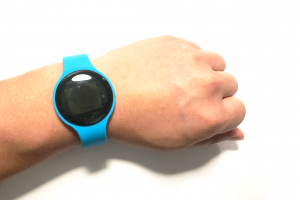Researchers in ubiquitous computing fields have assumed that smartphone owners consistently use, carry, or have access to their phones throughout the day. Current applications in fields such as mHealth believe that the smartphone is a promising and reliable sensing platform to understand user behaviors and environment. However, as wearable technology (e.g., smartwatches) has become more widely adopted, the changed technology landscape has impacted users' proximity to their smartphone. By introducing new qualitative and quantitative research techniques, we investigate the current users' proximity to their smartphone and the factors that influence the proximity.
We are interested in ubiquitous computing and the research issues involved in building and evaluating ubicomp applications and services that impact our lives. Much of our work is situated in settings of everyday activity, such as the classroom, the office and the home. Our research focuses on several topics including, automated capture and access to live experiences, context-aware computing, applications and services in the home, natural interaction, software architecture, technology policy, security and privacy issues, and technology for individuals with special needs.



